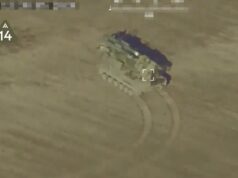The Ministry of Defence has set out detailed procedures for how service personnel are discharged, including those leaving on medical grounds.
Parliamentary Under-Secretary Louise Sandher-Jones said the MOD “has comprehensive policies and procedures in place to facilitate a smooth discharge process for UK Service personnel leaving their Service.”
This includes a nine-month timeline covering medical and dental examinations, resettlement meetings, pension arrangements and record verification, as well as terminal leave and the issue of a service leaver’s pack.
For personnel who are wounded, injured or sick, Sandher-Jones said “medical discharges follow a specific process involving a medical board review, and personnel may be eligible for compensation.” Each case concludes with a “Discharge Assessment” to ensure all issues are resolved before departure. Those medically discharged are automatically referred to Defence Transition Services or the Veterans Welfare Service for continued support with “simple transitional needs or enduring healthcare support for more complex challenges including PTSD.”
She added that “Structured Mental Health Assessments are part of the medical discharge process and are conducted by Defence GPs and screen for mental disorders at the point of discharge.” Defence Medical Services work with the NHS to ensure ongoing care, with Departments of Community Mental Health available for up to six months after discharge.
The average time between being notified of discharge and leaving service “can vary significantly,” and the department said it does not hold centralised data on this.
In a related question, Sandher-Jones said the safety of children and young trainees “is of utmost importance to the Ministry of Defence,” citing the Defence Safeguarding Policy (JSP 834) and Defence Direction and Guidance for Training and Education (JSP 822).
She added that the Army Foundation College Harrogate “fully implements the MOD’s zero tolerance policies,” reporting every incident of unacceptable sexual behaviour and requiring refresher safeguarding training before each new intake.














OMG HMG MOD (JSP and bar), that’s some serious Waffle stacking, I wonder how many meetings and proposals went into all that faff ?
What ever happened to the bloke with the rubber stamp and pained look “Stamp, Approved, Next”.
(Go easy, I just got up).
Late for you….should be 4am.